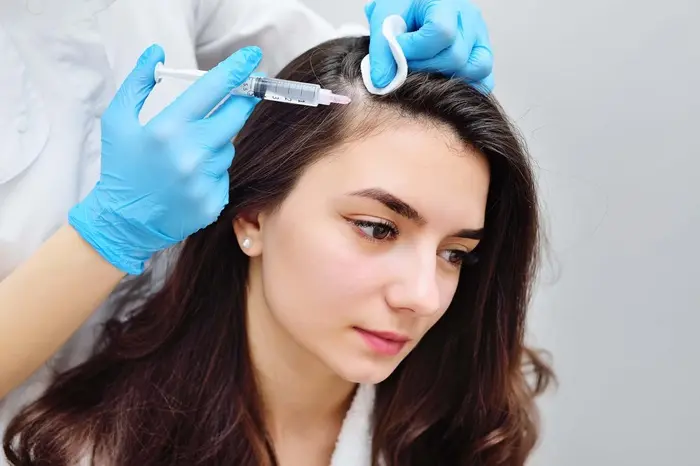Hair transplants have become increasingly popular among individuals seeking to restore their hairline and improve their overall appearance. However, post-operative care is crucial for ensuring optimal results. One common question that arises is whether vaping is permissible after a hair transplant. This article will explore the implications of vaping in the context of hair restoration, examining its potential effects on recovery and hair growth.
Hair Transplants
What Is a Hair Transplant?
A hair transplant is a surgical procedure that involves the relocation of hair follicles from one part of the body (usually the back or sides of the head) to areas experiencing hair loss. The two most common techniques are Follicular Unit Transplantation (FUT) and Follicular Unit Extraction (FUE).
The Importance of Post-Operative Care
After undergoing a hair transplant, the scalp requires careful attention. Proper post-operative care can significantly impact the survival of transplanted hair follicles and the overall success of the procedure. This includes following specific guidelines provided by the surgeon, avoiding certain activities, and maintaining a healthy lifestyle.
The Impact of Vaping on Health
What Is Vaping?
Vaping refers to the act of inhaling vapor produced by an electronic cigarette or similar device. These devices heat a liquid (often called e-liquid or vape juice) that typically contains nicotine, flavorings, and other chemicals.
Health Risks Associated with Vaping
While vaping is often marketed as a safer alternative to smoking traditional cigarettes, it is not without its risks. Some potential health concerns include:
Respiratory Issues: Vaping can irritate the lungs and lead to respiratory problems, which could complicate the recovery process.
Nicotine Dependence: Many e-liquids contain nicotine, which can impede blood circulation and affect healing.
Chemical Exposure: The inhalation of various chemicals can negatively impact overall health and potentially compromise the immune system.
Vaping and Hair Growth
The Role of Blood Circulation
Effective blood circulation is critical for hair growth, as it ensures that hair follicles receive the necessary nutrients and oxygen. Nicotine, a common component in vaping products, constricts blood vessels, which can impede circulation. Reduced blood flow may affect the viability of transplanted follicles and delay recovery.
Stress and Healing
Stress is known to impact hair growth negatively. Vaping can be both a stress relief and a source of stress, depending on an individual’s relationship with nicotine. If someone relies on vaping for stress relief, they might feel anxious about abstaining, which could hinder their overall healing process.
Expert Opinions on Vaping Post-Transplant
Surgeon Recommendations
Most hair transplant surgeons advise patients to avoid smoking and vaping for a specified period post-surgery. This recommendation is based on the understanding that both practices can adversely affect blood circulation and overall healing.
Patient Experiences
Many patients who adhered to their surgeon’s guidelines reported better outcomes. Conversely, those who resumed smoking or vaping too soon often faced complications, such as delayed healing and suboptimal hair growth.
Alternatives to Vaping After a Hair Transplant
Non-Nicotine Vaping Options
For individuals who enjoy vaping but want to avoid nicotine, there are nicotine-free e-liquids available. While these might mitigate some risks associated with nicotine, the long-term health effects of inhaling vaporized substances remain uncertain.
Stress Management Techniques
If stress relief is a primary concern, consider alternative methods such as:
Meditation and Mindfulness: Practicing mindfulness can help reduce anxiety and promote relaxation.
Exercise: Engaging in light physical activity can enhance mood and circulation.
Hobbies: Focusing on enjoyable activities can serve as a healthy distraction.
Timeline for Resuming Normal Activities
Immediate Post-Operative Period (Days 1-7)
During the first week after surgery, it is essential to prioritize healing. Patients should avoid any form of smoking or vaping to allow the scalp to recover properly.
First Month Post-Transplant
In the first month, the focus should remain on healing and monitoring the transplanted area for signs of growth or complications. Resuming normal activities should be approached cautiously.
Beyond One Month
After the first month, some patients may gradually reintroduce certain habits. However, it is still advisable to consult with the hair transplant surgeon before making decisions about vaping or smoking.
See Also: When Can You Smoke After a Hair Transplant?
Conclusion
While the desire to vape after a hair transplant may be tempting, it is crucial to consider the potential impacts on healing and hair growth. The consensus among healthcare professionals leans towards avoiding vaping, particularly those products containing nicotine. The best approach is to follow the guidance of your hair transplant surgeon and prioritize your health and recovery.
Final Recommendations
Consult Your Surgeon: Always seek personalized advice from your hair transplant specialist.
Prioritize Healing: Focus on recovery during the critical post-operative period.
Explore Alternatives: If you need stress relief, consider healthier alternatives to vaping.
In summary, the road to successful hair restoration involves not only the procedure itself but also a commitment to post-operative care. Making informed choices about habits like vaping can significantly influence the results of your hair transplant journey.
You Might Be Interested In:

